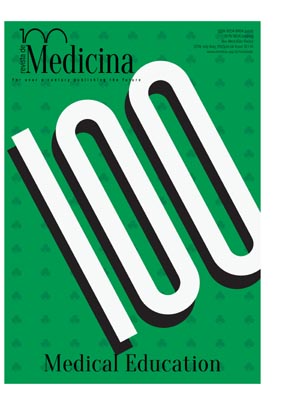The future of medical education: areas that should receive increased focus in the 21st Century
DOI:
https://doi.org/10.11606/issn.1679-9836.v95ispe3p30-31Palavras-chave:
Medical students, Medicine, Professional ethics, Medical educators, Knowledge.Resumo
What is fundamental for medical students to learn in the 21st Century? Many medical educators understandably focus on the explosion of new medical knowledge and technology that will be essential for medical students to master in the 21st Century. These include advances in molecular medicine, genomics, a plethora of new pharmacological approaches, among other stunning discoveries in medicine. Moreover, there will be a continued need to ensure that medical students acquire the highest level of professional ethics, leadership skills, empathy, and communication and patient-centered counseling skills. All of these have been a core focus of medical educators over the past decade and will continue to be a priority. In thinking about the 21st Century, there are several key additional areas of content knowledge and skills that will be essential for future physicians that to date have not received sufficient attention in medical skill curricula.[...]Downloads
Os dados de download ainda não estão disponíveis.
Downloads
Publicado
2016-08-29
Edição
Seção
Articles
Como Citar
Heisler, M. (2016). The future of medical education: areas that should receive increased focus in the 21st Century. Revista De Medicina, 95(spe3), 30-31. https://doi.org/10.11606/issn.1679-9836.v95ispe3p30-31




